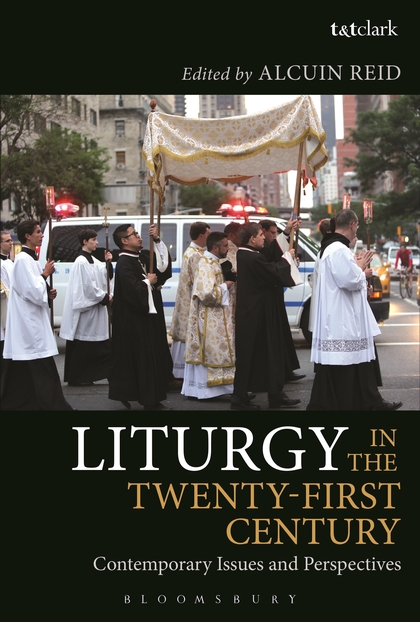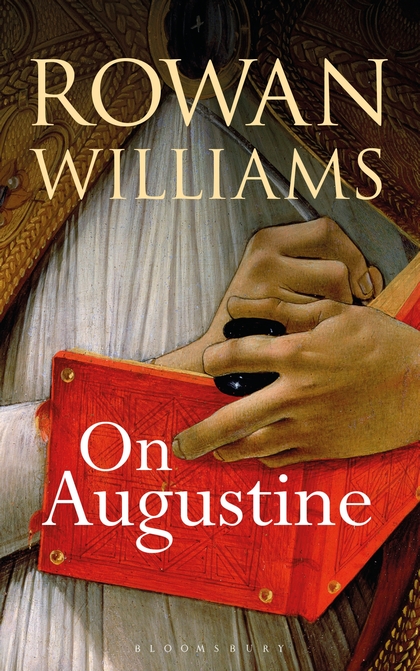Bloomsbury T&T Clark are delighted to announce that our new International Theological Commentary Series launches today with the first title in the series: Joel ITC by Professor Christopher Seitz, Professor of Biblical Interpretation at Wycliffe College, the University of Toronto in Canada.
To celebrate, we spoke to the series editors, Mike Allen, Associate Professor of Systematic and Historical Theology at the Reformed Theological Seminary, USA and Scott Swain, Professor of Systematic Theology at the Reformed Theological Seminary, USA about what we can expect from the series, and their experience (to date!) as series editors...


1. This is a brand new series for Bloomsbury T&T Clark. Can you briefly describe it?
The T&T Clark International Theological Commentary seeks to provide theological commentaries on every book of the Bible as well as on other classic texts of the Christian tradition.
Our aim for each biblical commentary is an integrated interpretation—historical, literary, and theological—of the canonical form of the text.'
2. This new series complements our established T&T Clark International Critical Commentary Series. How does it differ from and add to this series?
'The ITC is intended to provide a theological complement to the ICC. The volumes will run similar lengths to their companion volumes in the ICC and will treat the text with the same level of rigor and scholarship. Contributors represent a broad ecumenical constituency, Protestant and Roman Catholic, who share a commitment to Nicene Christianity and the belief that the Bible is God’s gift to the church. Beyond that, there are no specific confessional requirements for contributors. Furthermore, the series does not demand a contrastive stance between “theological interpretation of Scripture” and modern historical criticism but instead welcomes a panoply of approaches to relating those ways of interpreting the Bible.'
3. What did it mean to you to establish a new series with Bloomsbury T&T Clark?
'We believe that writing good commentaries which take into account a wide range of available scholarship, both ancient and modern, takes time. This is particularly true in the case of the ITC, because the writing of theological commentaries is still in an “experimental” phase, lacking as of yet clearly established protocols and disciplinary standards. Few publishers these days are willing to commit to long term projects of this sort. Bloomsbury T&T Clark was our first choice for the series because of their extended experience with and commitment to publishing the ICC. We were (and are) therefore thrilled with their support of the new series.'
4. Which aspect of setting up the new series most excited you? i.e. was it the prospect of teasing out previously unexplored areas of traditionally studies biblical books? Or the potential of working with specific people on particular topics?
'We have been encouraged by other projects in theological exegesis and profited much by them (especially other commentary series that have appeared in the last decade). But we have longed for a theological commentary series that would maintain a careful and diligent study of the way the words run, that is, by attending to line by line exegesis of the full scriptural text (rather than, as happens so often, picking and choosing portions on which to comment, often the low-lying fruit theologically). We want to see the practice of theological analysis developed anew by commenting upon the whole counsel of God.'
5. How much sway do the individual authors have for shaping their specific volumes? Is there a template way to approach the biblical books that characterises the series or does this differ in response to the different challenges posed by each biblical book?
'As noted above, we believe theological commentary is still in an “experimental” phase. Therefore, we have asked individual authors to exercise a significant amount of judgment and freedom in shaping their specific volumes. Different authors will bring different theological and hermeneutical perspectives to the text, and they are encouraged to allow the different texts, as well as the different issues they present, to dictate their specific approaches to writing their commentaries. We do not presume to suggest that commentary on Exodus and on Lamentations, or on Psalms and on Romans, ought to look exactly the same. While we do have some thematic and principled convictions regarding reading canonically and ecclesially and doing line-by-line exegesis, we are selecting commentators whose competence and wisdom are trusted to make judgments about useful approaches, organizational patterns, conversation partners, and the like. These similarities and differences will be obvious even in the first two volumes to appear: Christopher Seitz’s Joel and Peter Leithart’s Revelation.'
6. What was the biggest challenge you faced in outlining the series, and where does this series stand in the field of biblical studies?
'We are committed to finding contributors who have skill in both the theological and the exegetical task, and in many occasions the two are not found together.'
'We expect commentators to be able to engage in debate regarding literary details and rhetorical patterns regarding the form of the text as a scripture, and we seek out authors who have judgment shaped by formation in the Christian theological tradition, thereby honouring the text as holy scripture to be received by those marked by faith and love.'
7. How did you begin planning the series? Was it with a wish list of authors and topics? If yes, what were you on the lookout for in particular?
'We began by identifying theologians and biblical scholars who had already published books or even essays that impressed us with their theological-exegetical wisdom. Then we identified books of the Bible that really needed or demanded thoughtful theological exegesis. We started there. And we have been delighted to pair authors with some texts that seem like appropriate steps for them in their wider publishing program. For example, John Barclay will be turning from his decade-long project on Paul and the Gift, which has proven to be so significant, to writing the ITC volume on Galatians in a few years, which, to anyone aware of his ongoing project and development, seems like the perfect canvas on which to continue his interpretive artistry. Andrea Saner, a younger academic who has recently published a remarkable book on Exodus 3:14 (entitled “Too Much To Grasp”) will turn to offer commentary on the entire Book of Exodus, again an obvious next phase in her literary output. Wesley Hill (a highly regarded younger NT scholar who has written on Trinitarian theology and matters of Christian holiness) will be tackling the Johannine Epistles, which address both issues in profound ways. And Grant Macaskill has already penned a remarkable text on Union with Christ in the New Testament; he’ll be commenting upon the Book of Romans. Pairing authors with texts that seem to play on their strengths and further develop their main contributions to theological exegesis excites us very much as editors.'
8. To conclude, in brief: what can readers (that might surprise them!) expect from books in this series?
'We hope that these volumes will help make every biblical book and each line therein significant in the theological study of pastors, laity, academics, and others. There are texts that have low-lying fruit in terms of theological significance; we hope that this series not only offers wise analysis in those places but also shows the power of oft-overlooked texts. We think that being attuned to and in conversation with not only recent exegetical trends but also the deep classical tradition of Christian exegesis will help in that regard.'
If you would like to find out more about the series, then click HERE or on the pictures of the editors above!
If you'd like to buy a copy of Joel ITC, published today, then click the picture!








Recent Comments